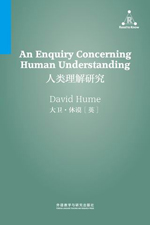comment
白雪丸子
The main content of An enquiry concerning human understanding is
empirical epistemology, including conceptual theory, causality and
skepticism. It also includes ideas such as "miracles, providence,
and the afterlife." Hume called his philosophy "the science of
man", referring to the study of human nature as opposed to natural
science. Therefore, Hume also called this science "the science of
human nature". The so-called human nature here has a broad meaning,
which includes the aspects related to human cognition, emotion, taste,
morality and ritual behavior. The concept of "science of human
nature" is in line with the rise of modern enlightenment, the
advocation and attention of human nature, and is also a reflection of
the trend of theoretical philosophy breaking up with natural science. In
An enquiry concerning human understanding, Hume comprehensively analyzes
human cognitive activities and points out that human cognitive ability
is limited. Through the analysis of the philosophy of religion, atheism
and absolute skepticism, Hume leads out his philosophy of "mild
skepticism". As a moderate skeptic, Hume believes that a reasonable
reasoner should always maintain a certain degree of doubt, caution and
humility in all investigations and assertions. Mild skepticism or
academic philosophy can be both durable and useful. The conclusion of
philosophy is nothing but a systematic and revised reflection of
everyday life, and Hume points out that the inherent problems of science
and research to which one can seek are two: quantitative science, and
the existence of reality and facts based entirely on experience. Hume
goes on to argue that the best and most solid foundations of theology
are faith and divine revelation; Morality and criticism are objects of
interest and pleasure, not of understanding. Except books containing
reasoning in numbers and quantities, and inferences about real facts and
any experience of existence, the rest of the books contain nothing but
sophistry and fantasy, which one may then throw into the fire.




 京公网安备 11010802032529号
京公网安备 11010802032529号